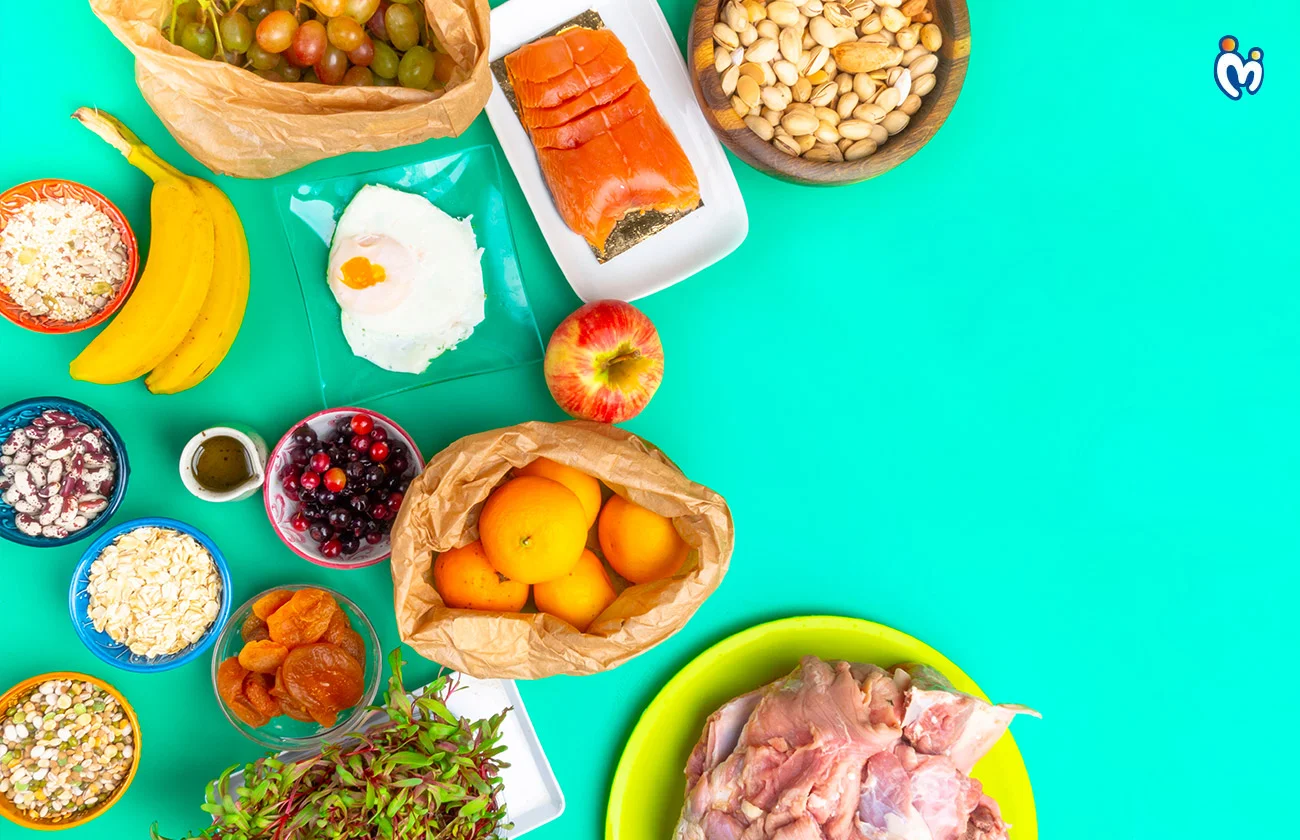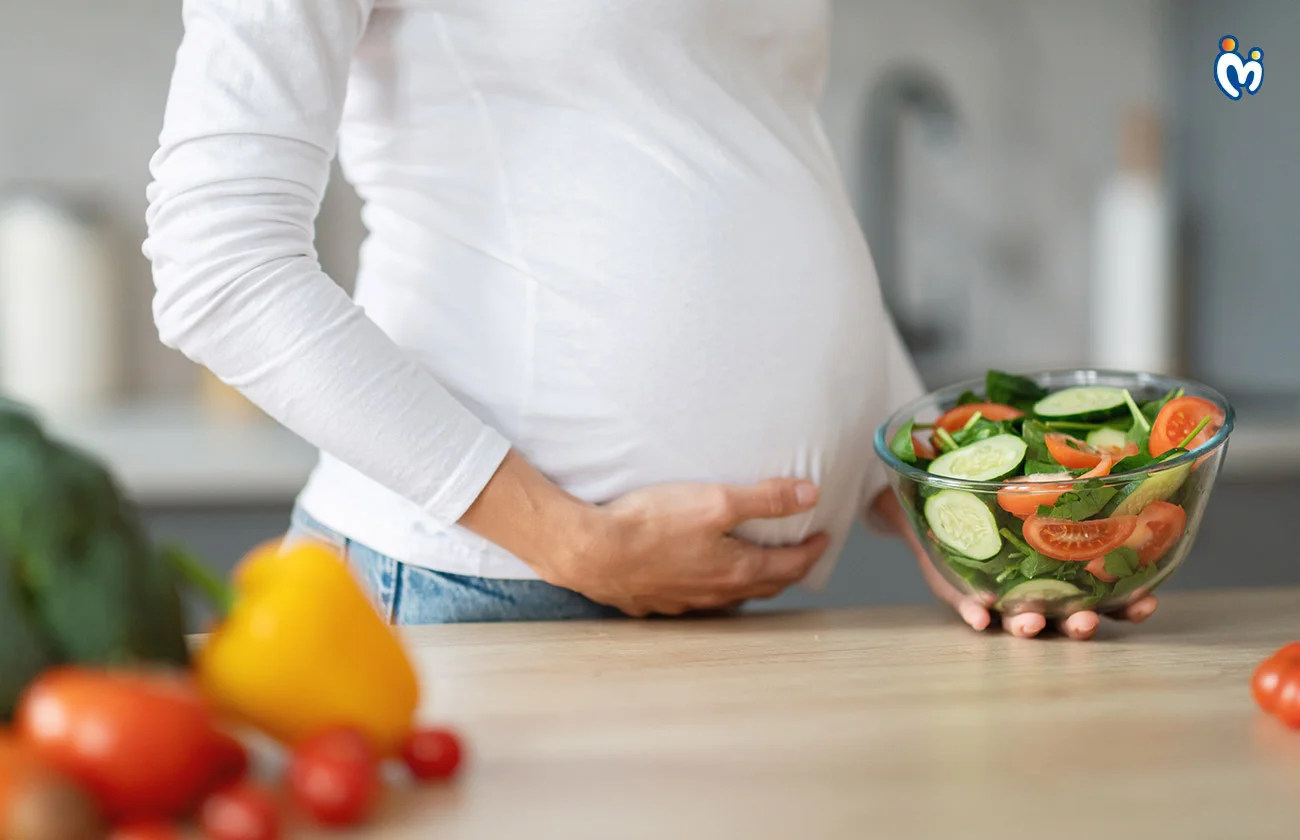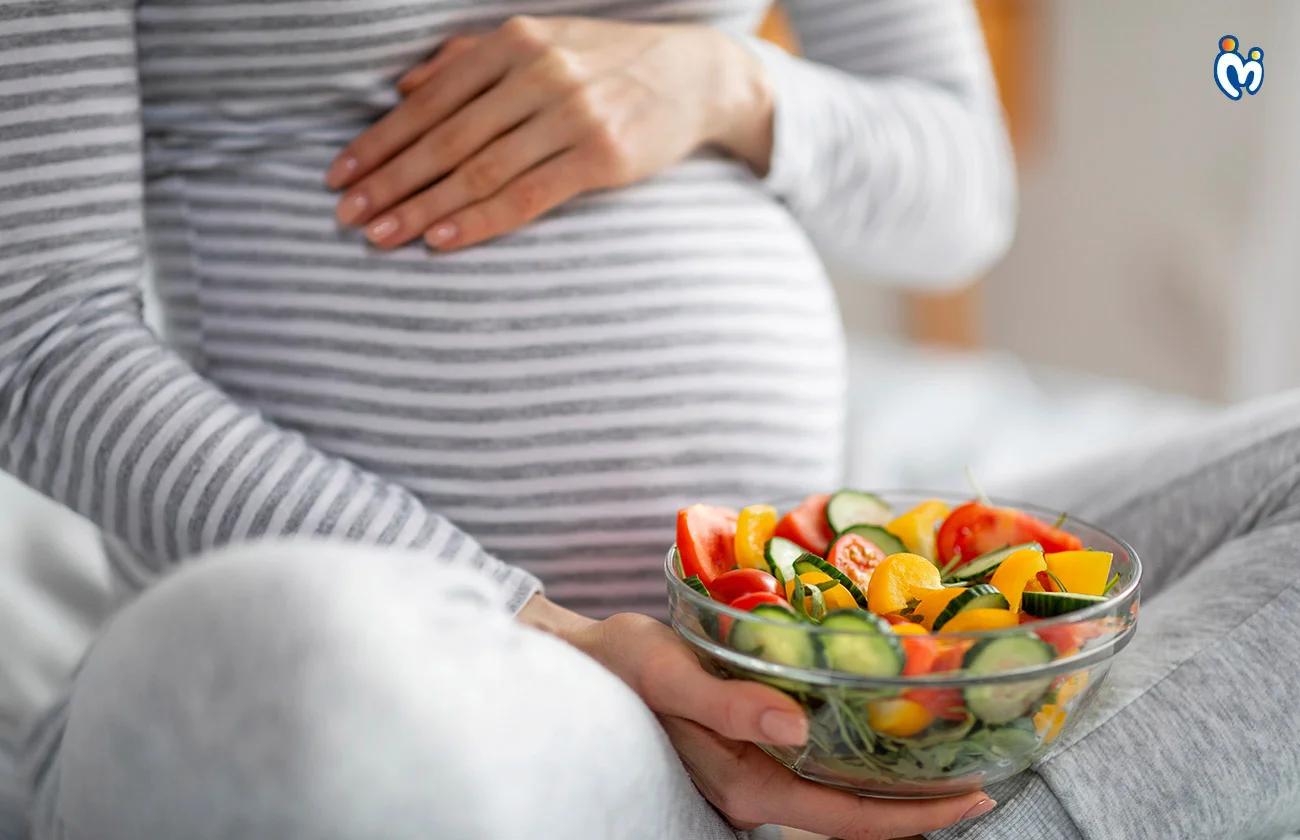Hello, mamy!
Pregnancy is such a beautiful journey, and one of the most powerful ways to support your baby’s growth is through nourishing, wholesome food. While you’ve probably heard about spinach, almonds, and milk being great for pregnancy, did you know that some lesser-known Indian superfoods can work wonders for both you and your little one?
Our Indian kitchens are full of hidden gems—foods that have been cherished for generations but don’t always get the spotlight. Let’s explore superfoods for each trimester, chosen specially to suit our Indian climate and lifestyle!
First Trimester: Building a Strong Foundation
The first trimester is all about building the essentials—your baby’s brain, spine, and organs are forming, and your body needs key nutrients like folic acid, iron, and vitamin B6. When your baby is just beginning to form in these early weeks, you might be dealing with morning sickness, food aversions, and fatigue. You need all these nutrients to support your baby’s development and help ease nausea.
Here are some unique Indian superfoods to include:
- Raw Mango (Kachchi Kairi) – A fantastic source of vitamin C and folic acid, raw mango can help with nausea. Aam panna (without too much sugar) is a refreshing way to consume it.
- Gongura Leaves (Ambadi/Sorrel Leaves) – Packed with iron, calcium, and folate, these tangy leaves make a great chutney or dal addition.
- Makhana (Fox Nuts) – Light on the stomach but rich in protein, calcium, and iron, roasted makhana is a perfect snack to keep energy levels up.
- Red Bananas – Unlike regular bananas, these are richer in fiber and vitamin B6, which helps reduce nausea and supports baby’s brain development.
- Gondh (Edible Gum) – Used in gond ke laddoo, this strengthens bones and provides warmth, though in moderation in the first trimester.
What to Avoid: Too much caffeine (limit chai/coffee), raw papaya, and overly spicy or oily foods that can worsen nausea.
Pro Tip: If morning sickness makes eating tough, stick to small, frequent meals and sip on lemon or ginger tea for relief.

Second Trimester: Strength & Growth
Welcome to the golden trimester, mamie! 💛 This is when your baby grows rapidly, their bones strengthen, and their tiny features take shape. You feel more energetic, your baby starts moving, and nutrient demands increase. Your body needs calcium, vitamin D, protein, and omega-3 fatty acids to support your baby’s growing bones, muscles, and brain. The best part? Your appetite is likely making a comeback!
Here are some power-packed Indian superfoods to add to your diet:
- Ragi (Finger Millet) – A traditional staple, ragi is one of the best sources of calcium and helps in baby’s bone development. Try ragi porridge or dosa!
- Sattu (Roasted Gram Flour) – Cooling, protein-rich, and a great iron booster, sattu mixed with water and lemon is a nutritious drink, especially in summer.
- Small Fish (Like Sardines) – These are rich in DHA and omega-3s, essential for baby’s brain development. Unlike larger fish, they have lower mercury levels. In India, sardines are also called "Mathi", "Nalla mathi", "Bhutai", and "Tarli".
- Walnuts (Akhrot) – One of the best vegetarian sources of omega-3s, walnuts help in baby’s brain growth and improve mom’s memory too!
- Drumstick Leaves (Moringa) – A true superfood, moringa is full of iron, calcium, and vitamins. Add to dal or parathas for an easy boost.
- Bajra (Pearl Millet) – Helps regulate blood sugar and provides iron, especially beneficial in colder months. Bajra roti with ghee is a great meal!
What to Avoid: Too much salt (to prevent swelling), raw seafood, and processed/junk food.
Pro Tip: Make your meals colorful—the more variety, the more nutrients you and baby get!
Third Trimester: Preparing for Birth & Recovery
Mamie, you’re in the final stretch! Your baby is gaining weight, their lungs are maturing, and your body is getting ready for labor. Now, you need protein, fiber, and energy-boosting foods to keep up with the extra demands on your body. Additionally, the more energy-rich, fiber-rich, and digestion-friendly foods you have, the better you will be able to prevent constipation and gain the stamina needed for delivery.
Here are some amazing Indian superfoods to include:
- Black Rice (Kala Chawal) – Higher in fiber and antioxidants than white rice, black rice is great for digestion and regulating blood sugar levels.
- Dalia (Broken Wheat) – A fiber-rich, easy-to-digest meal that provides slow-releasing energy, keeping you full and preventing pregnancy constipation.
- Ajwain (Carom Seeds) – Helps with bloating, acidity, and digestion. A cup of ajwain water daily can ease discomfort in the final weeks.
- Chana (Black Gram) – High in protein and fiber, black gram supports muscle strength—important for labor and postpartum recovery. Chana dal or sprouts work wonders!
- Dry Figs (Anjeer) – A great source of natural iron and fiber, anjeer prevents anemia and supports gut health.
- Coconut & Coconut Water – Hydrating and full of electrolytes, coconut helps prevent leg cramps and dehydration—a common issue in the third trimester.
- Desi Ghee – A well-known energy booster, ghee (in moderation) helps lubricate joints, supports digestion, and is often recommended in the final weeks for smoother labor.
What to Avoid: Excess sugar, heavy fried foods, and overeating in one sitting—small frequent meals work best!
Pro Tip: Stay hydrated—your body needs extra fluids for amniotic fluid levels and circulation.

Cravings & What They Mean
Pregnancy cravings can be fun and strange at the same time! But did you know that cravings can sometimes signal what your body needs?
- Craving Chocolate? You might need more magnesium—try nuts or seeds!
- Craving Salty Foods? Your body might need more electrolytes—hydrate with coconut water!
- Craving Carbs? Your energy levels may be low—opt for whole grains instead of refined flour!
It’s okay to indulge sometimes, mamy! Just aim for balance.
Foods to Limit or Avoid
While most foods are safe in moderation, some should be limited for baby’s safety:
- Raw or Undercooked Meat, Eggs, and Seafood – To avoid harmful bacteria.
- Excess Caffeine (More than 200mg per day) – Can affect baby’s growth.
- Unpasteurized Dairy & Soft Cheeses – May carry bacteria harmful to pregnancy.
- High-Mercury Fish (Magur, Talwar Machhli, Bangda) – Can impact baby’s brain development.
- Too Much Sugar or Junk Food – Can lead to excessive weight gain and gestational diabetes.

Summarizing: Quick Tips for a Balanced Pregnancy Diet!
- Eat a Rainbow – The more colorful your plate, the better!
- Stay Hydrated – Coconut water, jeera water, and buttermilk help.
- Healthy Snacks – Keep makhana, roasted chana, or dates handy.
- Mindful Eating – Listen to your body, eat when hungry, and don’t stress about cravings!
A Little Reminder, Mamy
Every pregnancy is unique, and your cravings, appetite, and digestion will keep changing. The goal isn’t to eat perfectly but to nourish yourself and your baby with love.
So enjoy your meals, try new flavors, and trust your body—it’s doing an incredible job growing your little one!
What’s your favorite pregnancy food, mamy? Let’s share in the comments!
FAQ's
Q. Why are superfoods important during pregnancy?
Ans.Superfoods are nutrient-dense foods that provide essential vitamins, minerals, and antioxidants. They help support the baby's growth, strengthen the mother's body, and address common pregnancy issues like nausea, fatigue, and digestion.
Q. Can I eat raw mango (kachchi kairi) during pregnancy?
Ans.Yes, in moderation. Raw mango is rich in vitamin C and folic acid, and it can help ease nausea. Just avoid too much sugar when consuming preparations like aam panna.
Q. Is it safe to eat makhana (fox nuts) daily during pregnancy?
Ans.Absolutely! Makhana is a light, nutritious snack full of protein and calcium. Roasting it with minimal salt makes it a perfect pregnancy snack.
Q. Why are gongura (sorrel) leaves recommended in the first trimester?
Ans.Gongura leaves are packed with iron, folate, and calcium, which are crucial for early fetal development and preventing anemia.
Q. What are the benefits of ragi during pregnancy?
Ans.Ragi (finger millet) is rich in calcium, iron, and fiber. It helps in baby’s bone development and prevents constipation, making it an excellent addition in the second trimester.
Q. Can I consume small fish like sardines during pregnancy?
Ans.Yes. Small fish are rich in omega-3 fatty acids (DHA) and low in mercury, making them safe and beneficial for the baby's brain development.
Q. Are drumstick (moringa) leaves good during pregnancy?
Ans.Definitely. Moringa leaves are a powerhouse of iron, calcium, and essential vitamins. They support overall health and help prevent iron deficiency.
Q. Why should I avoid high-mercury fish in pregnancy?
Ans.High levels of mercury can harm the baby's developing brain and nervous system. It’s safer to opt for low-mercury fish like sardines and anchovies.
Q. How does coconut water help during pregnancy?
Ans.Coconut water is rich in electrolytes and helps prevent dehydration, leg cramps, and swelling—common pregnancy discomforts, especially in the third trimester.
Q. Is desi ghee good for pregnant women?
Ans.In moderation, yes. Ghee aids digestion, provides energy, and is traditionally believed to help prepare the body for labor.




















